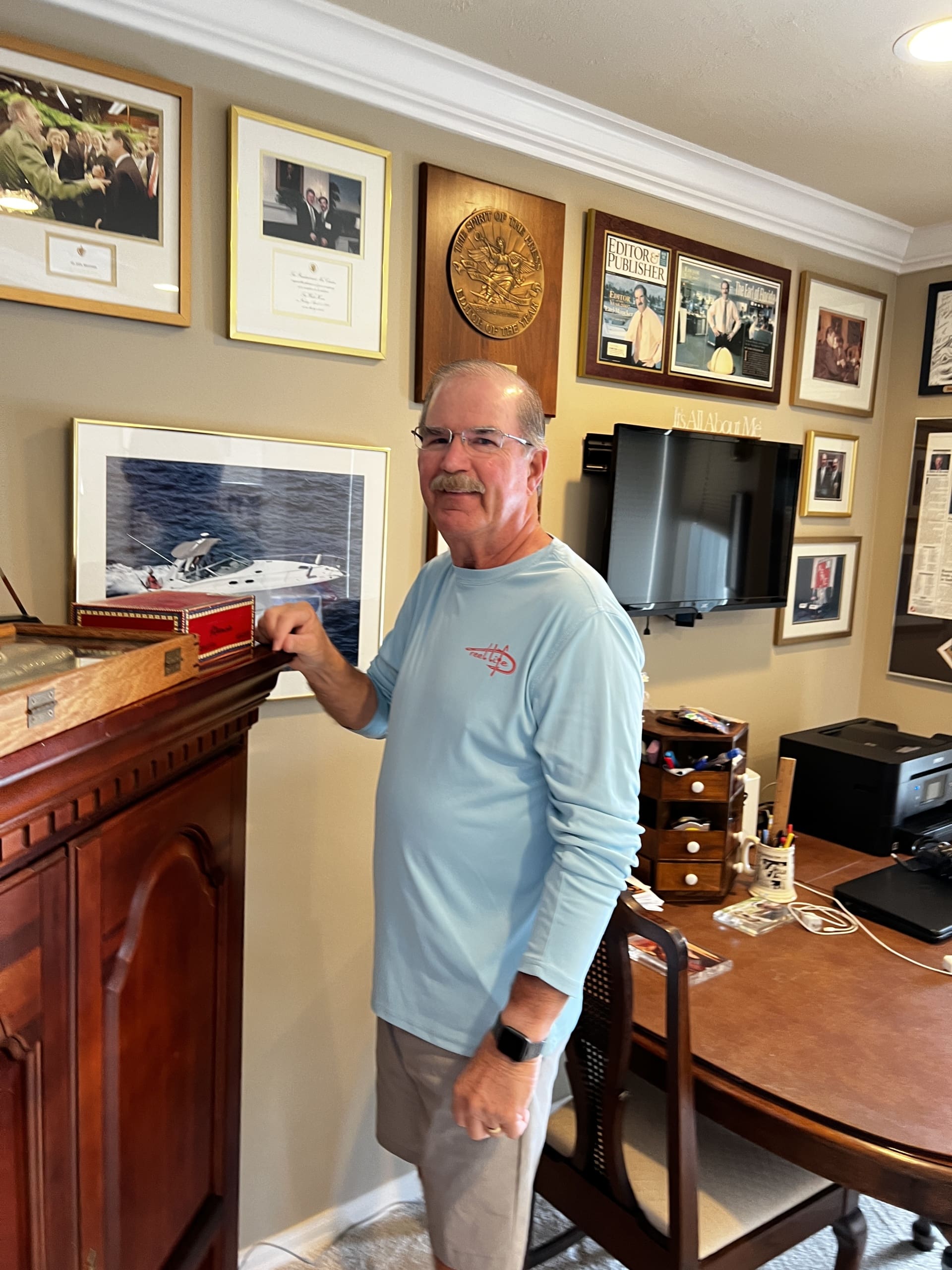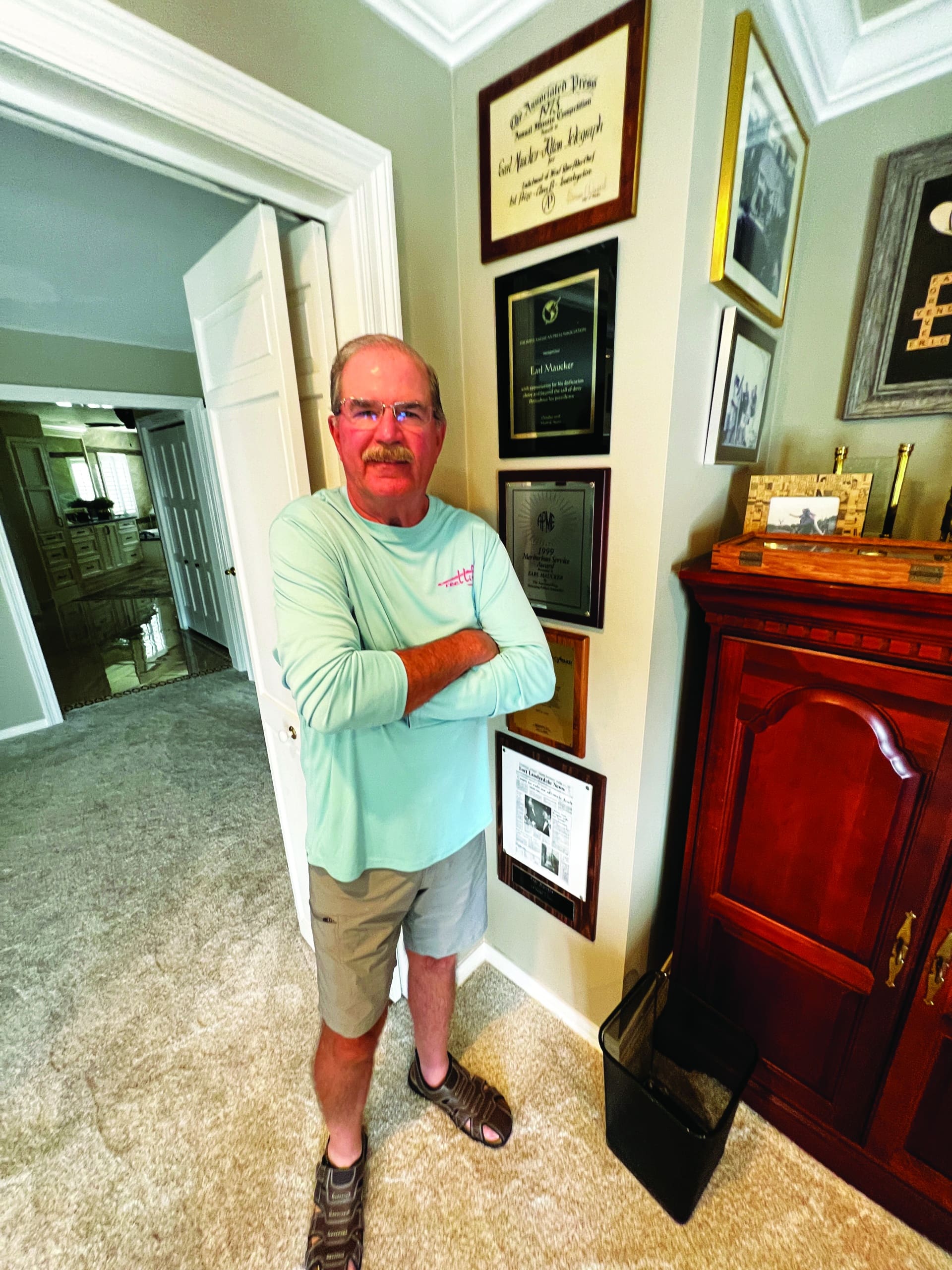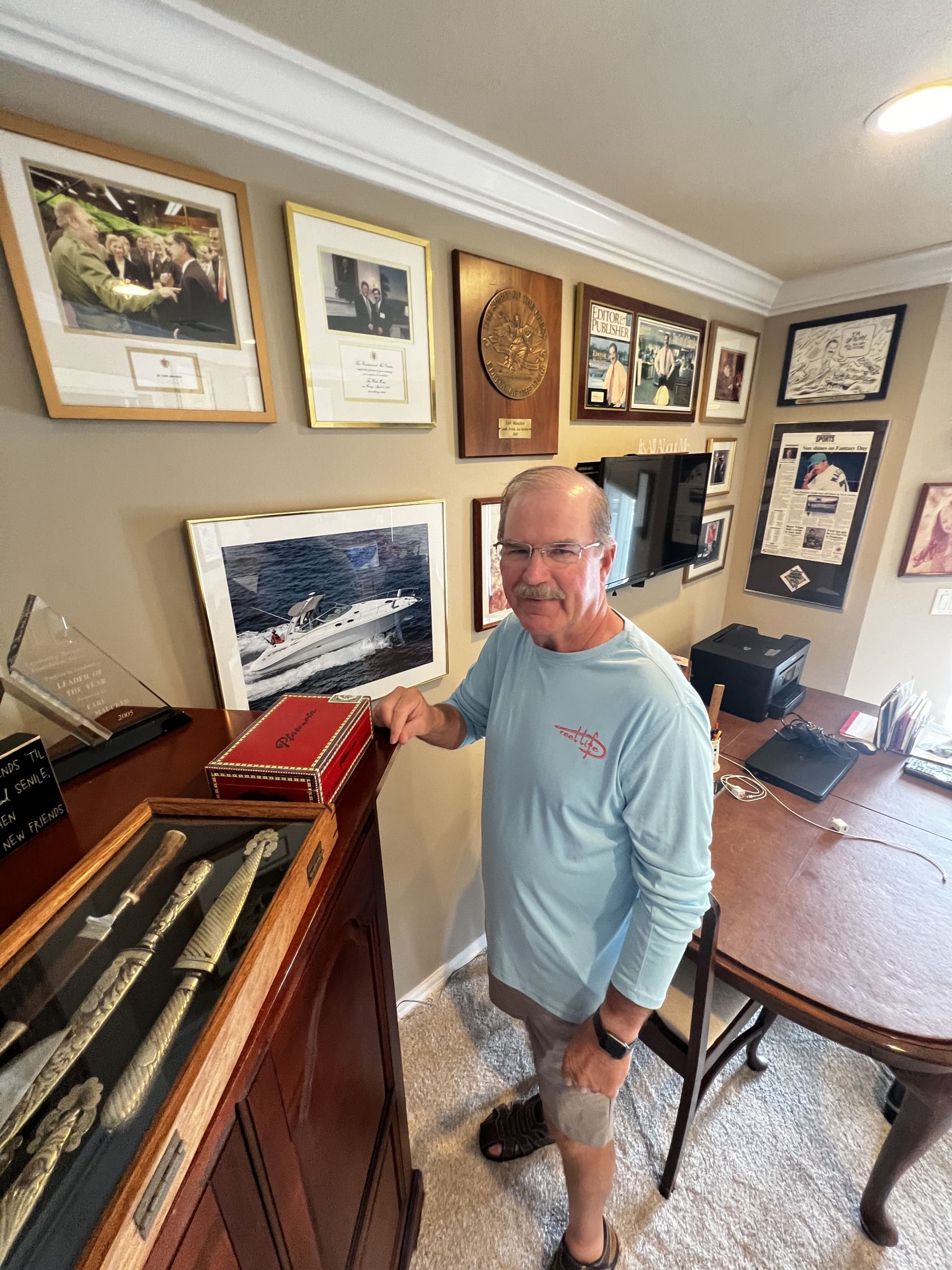By Richard Rosser

Earl Maucker is an award-winning journalist who served 16 years as editor of the Sun-Sentinel and 14 years before that as its managing editor. In 2010, he retired and just two years later decided to run for Lighthouse Point City Commission, where he recently completed his third term and opted not to run for re-election.
We caught up with Earl recently and asked for his perspective, thoughts and observations about moving out of the world of journalism and into the realm of public service.

LHP magazine: Tell us why someone with 40 plus years as a journalist would seek public office. Somehow, the two professions seem almost contrary — especially in today’s world?
Earl: For me, it was a natural progression. As a young journalist, I covered municipal government. I reported on community boards, hospital districts, school boards, and township and municipal communities. I understood local government on a basic level and felt my background could be beneficial. In my career, I witnessed really bad and corrupt government and also the best it could possibly be with dedicated public servants committed to the public good. I would also argue that journalism is public service. Both professions need the public’s trust, so there are some notable similarities.
LHP magazine: So, tell us what you experienced in Lighthouse Point. What were the strengths and weaknesses, and what were the challenges?
Earl: The first thing I’d say is that the residents of Lighthouse Point are extremely fortunate. The city is well managed. Financially the community is prosperous and well funded, with financial reserves that surpass all state requirements. Perhaps best of all is the city commissioners are dedicated, smart and committed to the welfare and interests of the residents of Lighthouse Point. The commissioners are a collegial body, and in my 10 years as a commissioner, there was never a serious breach of ethical behavior. Also, in my 10 years, politics was never an issue. City commissions are supposed to be non-partisan, and everyone on the commission understood that. Sure, there were disagreements, as you would expect, but everyone respected each other. Even on our local boards, we have residents in this city who are well educated, well rounded and determined to do what is in the best interests of our community.
LHP magazine: But there have to be weaknesses and problems. Give us a sense of what those are.
Earl: Of course, there are challenges. Even though the city is well funded, there is not enough money to complete all the infrastructure projects that are needed. Roads, bridges, canal dredging, stormwater systems, sea wall repair, the list goes on and on. Lighthouse Point has the third lowest tax rate in Broward County, but at some point, city officials may need to consider where and how they can get the funds necessary to keep up with the aging infrastructure. There is a lot of grant money available, but increasingly it takes trained people to find and apply for that funding. I’m not sure the city can hold the line on no new taxes in the long run.

LHP magazine: What did you find most frustrating?
Earl: I find the State of Florida’s constant efforts to undermine municipal government frustrating. Vacation home rentals are an example. The state would like municipal governments to have limited authority to regulate short-term rentals. We, as the commission, felt it was necessary to ensure local rental properties met local standards. Local government is in the best position to decide what is best for the community — not the state.
Another example is we passed a no-smoking policy in our local parks. That’s fine, but the reality is we can’t enforce it. The state regulates smoking in public places. We can put up signs and ask people not to smoke, but we have no authority to cite offenders.
LHP magazine: There must have been other frustrations.
Earl: Another big one is what I would describe as a good thing and a bad thing. We have a very strict open meetings requirement, meaning commissioners cannot speak to each other about city business unless it is in a public setting, and all public meetings must include a notification to the public so they can attend if they choose. I am a big believer in the policy, but it does inhibit candid and open discussions about city issues. The result is that these issues must wait for a commission meeting or a workshop, or another public forum. Meetings tend to run long, and people get tired, so discussions don’t get into the kind of detail necessary to hash out complex issues.
LHP magazine: Is that a complaint about Florida’s Sunshine Law?
Earl: Yes and No. Florida’s open government policy is one of the best in the nation, but like democracy in general, it’s an imperfect system. Good that the public is involved in the very essence of government decisions, but it creates a bureaucracy that inhibits getting things done in a timely and efficient fashion. That’s the penalty we pay for open government — but in the end, it’s worth it. It just takes longer to make progress. I say the same thing about the news business. People hate it, but flawed as it is, it is the cornerstone of democracy. Without a free and open press, our democracy is doomed.
LHP magazine: What would you say was your greatest accomplishment as a commissioner?
Earl: Clearly, getting the general obligation bond passed that provided for the new fire station, community center and public works headquarters.

LHP magazine: Some critics say the fire station is like the Taj Mahal.
Earl: It makes a bold statement — that public safety in Lighthouse Point is priority one. I think the new building is a signature building that’s like a beacon of stability. It says your safety is important to us. Your welfare is important to us — the same with the new community building. It’s a structure that will be used for 40 years and generations to come. Opportunities for that haven’t even been realized yet.
LHP magazine: What would you say was your biggest disappointment?
The entire experience was wonderful. Of course, there were frustrations and disappointments along the way. The bureaucracy of doing government business has always been a frustration to me. In private business, you make a decision, and your team is expected to get on board and go forward. In government, you make a decision, and half the people will say I don’t like it and I’m not on board. You just can’t please everybody because there are always contradictions and exceptions.
LHP magazine: Contradictions and exceptions? Explain.
Earl: Take code enforcement, for example. For a city like Lighthouse Point, public appearance is extremely important. We pride ourselves on looking better than any of our surrounding communities. Yet, enforcing code ordinances is among the most challenging jobs. You keep your hedge at eight feet, yet your neighbor seems to get by with 10-foot hedges. Why the disparity? Enforcement seems inconsistent. And it is! The philosophy is to achieve compliance rather than penalize. As a result, code officials will try working with a resident for months at a time in an effort to get compliance. It’s particularly true for older people who don’t have the resources to eliminate violations immediately. Code enforcement should be black and white — but it really isn’t.
LHP magazine: So, what’s in the future for Lighthouse Point?
Earl: The city has a new mayor, Kyle Van Buskirk, who brings tremendous energy to the job. He is young, smart, and up to the task of identifying problems and finding solutions. The commission appointed him after the untimely death of Mayor Glenn Troast. What the city needs most urgently — and they are working on it — is a strategic plan. Something that looks out five years, 10 years and beyond. It needs residents to get involved and help plan the way forward. The city also needs to decide if it wants to stay with the strong mayor form of government. Most municipalities have a City Manager, which may be a logical move for Lighthouse Point as municipal government gets increasingly complex. Being the mayor of Lighthouse Point cannot be a part-time job for much longer.





